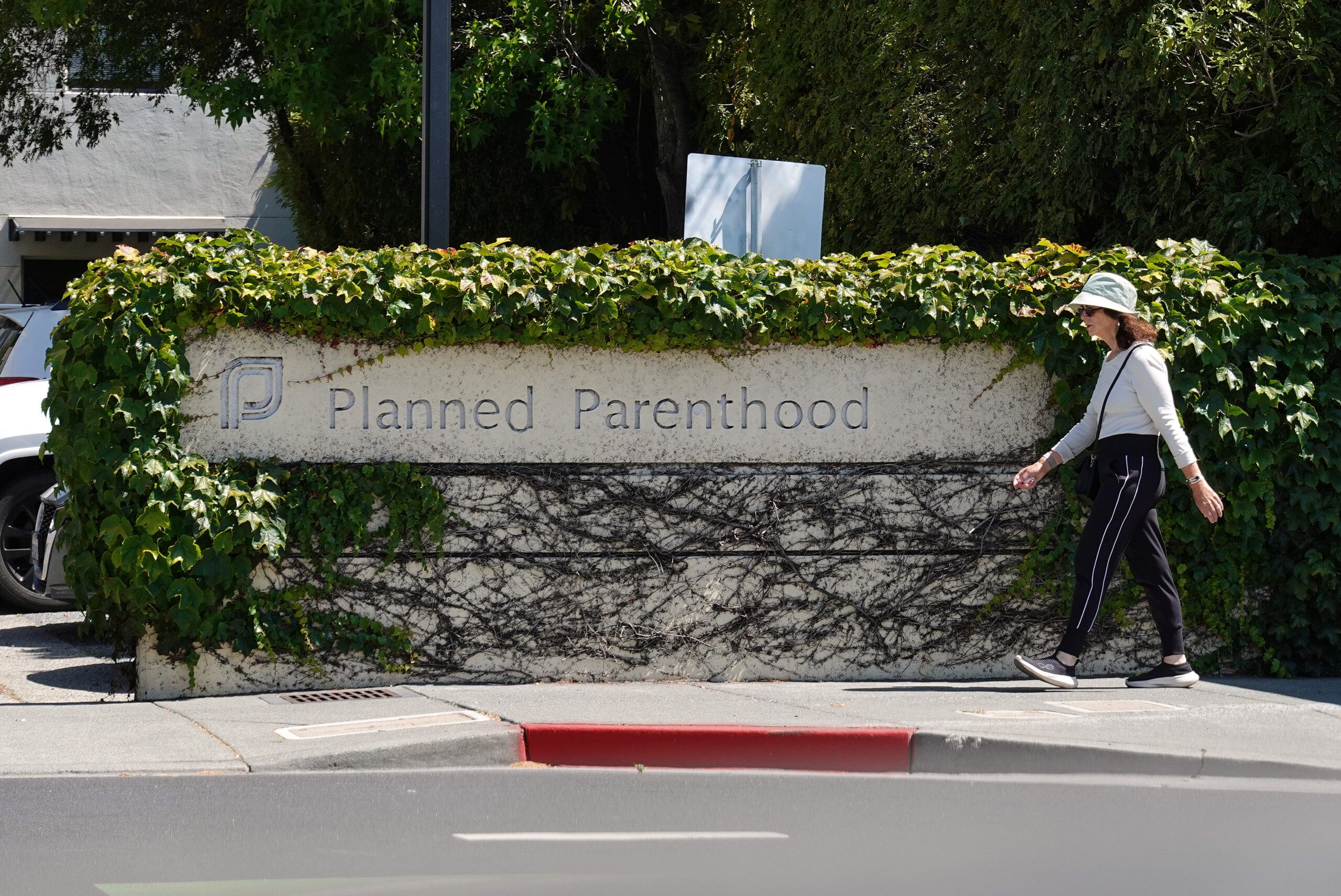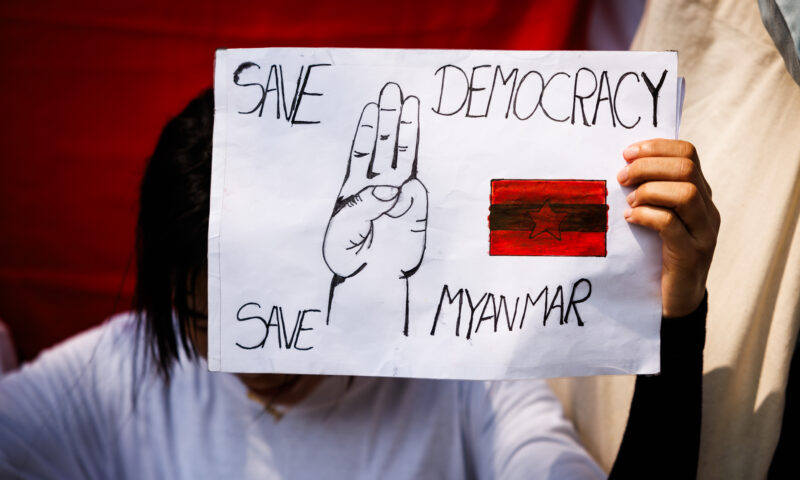The framers of the latest lawsuit against the Trump administration’s attempt to dismantle Planned Parenthood have succinctly identified their point of the attack.
“We need to just call it what it is: punishment for Planned Parenthood’s constitutionally protected advocacy for abortion,” California Attorney General Rob Bonta said this week in announcing the suit, filed in U.S. District Court in Massachusetts by California and 22 other states, along with the District of Columbia. (Planned Parenthood itself is not a plaintiff in this suit.)
The complaint, which Bonta said is the 36th he has filed against the administration in Trump 2.0’s first 27 weeks in office, challenges the constitutionality of a provision in the recent budget reconciliation act. That provision denies Medicaid reimbursement for health services rendered by sufficiently large nonprofit clinics that provide abortion services, a description apparently written specifically to proscribe Planned Parenthood.
That’s a denial of funding for all health services offered by the organization, not abortion. In California, that means the loss of roughly $300 million, money Planned Parenthood uses to help defray the cost of providing health care to about 1 million patients a year. Roughly 80% of those patients rely on Medi-Cal, the state’s version of Medicaid, for their coverage.
“The Trump administration and Congress are actually gutting essential, life-saving care like cancer screenings and STI testing simply because Planned Parenthood has spoken out in support of reproductive rights,” Bonta said. “The hypocrisy is hard to ignore — a party that claims to be defenders of free speech only seems to care about it when it is in alliance with their own agenda.”
Trump’s Department of Health and Human Services has made clear the linkage between the draconian funding cuts and Planned Parenthood’s staunch support of abortion rights. “States should not be forced to fund organizations that have chosen political advocacy over patient care,” department spokesman Andrew Nixon said last week.
That fairly obvious intent — “I would like to, that’s for sure,” House Speaker Mike Johnson said last December about axing Planned Parenthood – has left the government open to legal challenges like the one brought this week. But there’s another factor to consider, albeit one that Trump and his allies won’t lose sleep over: Their fixation on the abortion issue dramatically misrepresents what the organization really does.
* * *
Planned Parenthood certainly offers abortion services, and — both nationally and in California — makes no apologies for it. “They always underestimate how much people want and will fight for reproductive freedom, especially in California,” said Jodi Hicks, CEO of Planned Parenthood Affiliates in California, speaking broadly of the Trump administration’s efforts against the clinics. “We are fighting back with every tool that we have.”
Nationally, an overwhelming majority of Americans say abortion should be legal in all or most cases. But abortions constitute only a small fraction of the services that Planned Parenthood provides across the nation — just 4% overall, according to the organization’s 2022-2023 annual report. The largest broad category of care provided by its clinics is for sexually transmitted infections or diseases, commonly known as STIs and STDs. The next largest parcel of care is for contraceptive services and family planning, and there are also routine checkups, cancer screenings and prescriptions for medication.
In other words, Planned Parenthood is health care. And although California remains a staunch supporter of reproductive freedom and the organization offers abortion services statewide, Hicks said that many of the organization’s regular patients visit for basic care. Defunding the organization means less care will be available to patients, pure and simple.
As for abortion, no federal money is or has been involved in that area of health care for a long time. With some narrow exceptions, the Hyde Amendment banned such usage of federal funds nearly 50 years ago. This Congressional budget act is, rather, a straight restriction of funding to Planned Parenthood, using abortion as an inflection point.
For California, with its 114 Planned Parenthood locations, that will almost certainly mean less available health care — and there would be a ripple effect to that.
“Sadly, we already know where federal defunding of Planned Parenthood will lead,” said U.S. Rep. Sydney Kamlager-Dove (D-Calif.), whose district sits squarely in Los Angeles County, which has 24 Planned Parenthood centers serving more than 250,000 patients. “Cancers will go undetected, the STI crisis will worsen, wellness exams and preventative care will substantially decline, and it will be harder than ever for people to access birth control.”
The denial of funding, added L.A. County public health director Barbara Ferrer, will interrupt “the primacy of the provider-patient relationship for thousands of people across Los Angeles. Sadly, this short-sighted politically motivated move by the federal government will deepen longstanding health inequities and threaten the well-being of so many.” But halting abortion services where they’re still legal will not happen. Planned Parenthood said in a statement that its health centers “will continue to proudly provide the full range of reproductive health care – including abortion — no matter what.”
* * *
This most recent court case argues that the budget measure intentionally singles out Planned Parenthood for punishment in violation of the group’s constitutional right to free speech — in this case, its advocacy of abortion rights. It also argues that while the individual states are tasked with screening Medicaid reimbursement claims, the budget provision “does not provide adequate guidance, definition or notice” to the states on how to do that — or even what the effective dates are to begin enforcement.
That lawsuit follows the one filed by Planned Parenthood itself in early July on many of the same grounds. Last week, a federal judge issued a preliminary injunction in that case, but the injunction allows only a small fraction of Planned Parenthood clinics nationally to continue receiving Medicaid reimbursements for health care services.
In California, health leaders and politicians alike can do the math. Five clinics have already closed in Northern California and the Central Coast, and if fewer people can access Medi-Cal covered health care, they are going to see doctors less often and, in many cases, wait until they are deeply ill before seeking care. That care often will be sought in the emergency rooms of local hospitals, where patients cannot be denied treatment even if that care goes unreimbursed. The burden on hospitals could become enormous, especially when placed within the larger context of Congress’s $800 billion in planned cuts to Medicaid.
The budget provision concerning Planned Parenthood covers only one year. It’s unclear what the future holds. But with the Republican Party holding the U.S. House and the Senate, there’s no reason to think the road to Medicaid funding will become any easier — nor the ability for the health care provider to keep doors open.
“When women, young women, adult women, are going to Planned Parenthood, they’re asking for — looking for — help about reproductive health care,” Kamlager-Dove, board co-chair of Planned Parenthood Los Angeles, said at a news conference.
“They’re trying to get cancer screenings. They’re trying to handle STIs and STDs. They are trying to do what everyone else tries to do when they see their health care provider,” the representative said. That basic need, once again, is under active threat.
Copyright 2025 Capital & Main


 Latest NewsJanuary 8, 2026
Latest NewsJanuary 8, 2026
 The SlickJanuary 12, 2026
The SlickJanuary 12, 2026
 Pain & ProfitJanuary 7, 2026
Pain & ProfitJanuary 7, 2026
 Latest NewsJanuary 6, 2026
Latest NewsJanuary 6, 2026
 Latest NewsJanuary 13, 2026
Latest NewsJanuary 13, 2026
 Column - State of InequalityJanuary 8, 2026
Column - State of InequalityJanuary 8, 2026
 Column - California UncoveredJanuary 14, 2026
Column - California UncoveredJanuary 14, 2026
 Latest NewsJanuary 16, 2026
Latest NewsJanuary 16, 2026

